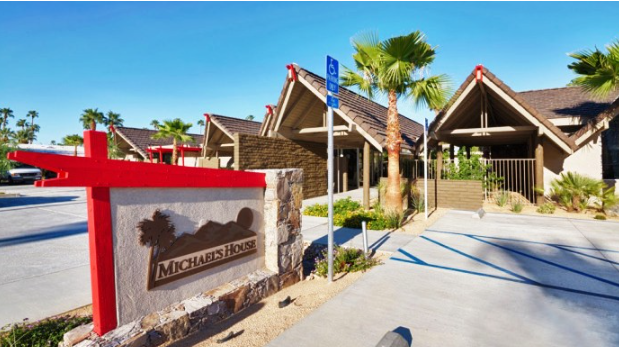Overview
Foundations Detroit is an accredited substance abuse treatment center that provides outpatient detoxification, for men and women from 18+ years of age. As part of their special programs, Foundations Detroit treats clients who have experienced trauma. To help patients achieve sobriety, Foundations Detroit provides intake assessments. Afterward, patients receive 12-step facilitation, creative arts therapy, and family counseling during treatment. Foundations Detroit is located in Royal Oak, Michigan, providing treatment for people in Oakland County, accepting cash or self-payment, private health insurance, and daily.
Foundations Detroit at a Glance
Payment Options
- Cash or self-payment
- Private health insurance
- Daily
- Aetna
- Blue Cross and Blue Shield Association
Assessments
- Comprehensive mental health assessment
- Comprehensive substance use assessment
Age Groups
- Young adults
- Adults
Operation
- Treatment duration
- Private for-profit organization
Accreditations
The Joint Commission:

The Joint Commission's addiction and behavioral health accreditation signifies a facility's commitment to high-quality care. It involves rigorous evaluations and assessments of clinical practices, ensuring effective, evidence-based treatment. Accreditation showcases a dedication to continuous improvement and patient safety, instilling trust among patients, families, and healthcare professionals. It's a mark of excellence in addiction and behavioral health care.
Effective date: 03/08/2017
Registration: 601077
State department of health:

Government agencies issue State Licenses, granting rehabilitation organizations permission to operate their businesses legally within specific geographic regions. The licenses needed for legal operation are typically determined by the type of rehabilitation program offered by a facility and its physical location.
Registration: SA0631390
SAMHSA certification for opioid treatment program (OTP):
SAMHSA's Opioid Treatment Programs (OTP) accreditation is a prestigious recognition that signifies a program's compliance with stringent standards and guidelines established by the Substance Abuse and Mental Health Services Administration (SAMHSA). This accreditation demonstrates an OTP's commitment to providing high-quality, evidence-based care for individuals struggling with opioid use disorder (OUD). It serves as a trusted symbol of accountability and excellence, assuring patients, families, and communities that the OTP offers safe, effective, and comprehensive treatment options for OUD.
Treatment At Foundations Detroit

Conditions Treated
Mental health treatment:
Mental health services are essential during treatment for drug and alcohol addiction, whether you receive treatment in an inpatient or outpatient setting. While receiving inpatient care, you can expect to have round-the-clock access to mental health therapists and medical staff. Additionally, you will likely receive a number of different therapies and mental health options like individual and group counseling, addiction and relapse prevention education, and coping skills training.
Alcoholism:
Alcohol addiction is a health problem where drinking takes control over a person's life. It affects how their brain thinks and acts, leading to strong desires to drink, bad feelings, sudden actions, and discomfort when not drinking. To help someone with this problem, there are treatments like detox, counseling, group support, and learning coping methods. While treatment can't completely cure the urge to drink, it helps people regain control of their lives and feel better overall.
Opioid Addiction:
Opioid addiction rehabilitation is a specialized treatment process tailored to address the unique challenges and complexities of opioid dependence, including drugs like heroin and prescriptions like oxycodone. The process typically begins with a medical detox to ease withdrawal symptoms, followed by therapeutic interventions to address the root causes of addiction. This holistic approach aims to provide individuals with the skills and support needed for long-term recovery from opioid use.
Substance use treatment:
Substance abuse treatment programs can help to address addiction and, if relevant, any co-occurring mental health conditions. Programs include outpatient, inpatient, dual-diagnosis, and partial hospitalization. The addict will receive therapies like cognitive behavioral therapy, or dialectical behavioral therapy, and sometimes complementary therapies like acupuncture and mindfulness-based therapy. By attending skills training and recovery groups you’ll build a strong foundation for your recovery and strengthen your support network, increasing your chances of long-term recovery success.
Co-occurring Disorders:
Dual-diagnosis rehabs are usually the appropriate solution to treat co-occurring mental health and substance abuse disorders. These facilities typically employ medical and behavioral experts who use a range of interventions, together with the right healing environment, for you to achieve and sustain long-term recovery. Treatment usually includes evidence-based therapies (like cognitive behavioral therapy), recovery support meetings, 12-step facilitation, psychoeducation, skills training, and group therapy.

Levels Of Care
Detoxification:
Detoxification, often called detox, is like a reset button for the body after someone has been using drugs or alcohol. Its main job is to help people who want to quit these substances by easing the discomfort they might feel when they stop. Think of it as a way to clean out the harmful stuff in the body when someone has been using drugs or alcohol too much. Detoxification aims to make the process of quitting safer and less painful for the person.
Aftercare:
Aftercare treatment refers to the continued support and care that individuals receive following the completion of their primary treatment program for substance abuse or addiction. This phase aims to aid individuals in maintaining their sobriety, improving personal skills and coping strategies, and integrating back into society. Aftercare can include ongoing therapy, support group meetings, education, and monitoring, which are crucial for preventing relapse and promoting long-term recovery. Through a combination of community support, accountability, and personal development, aftercare provides a structured pathway for individuals to continue their recovery journey in a supportive environment.
Outpatient:
Outpatient programs cater to individuals who are in good medical condition and are not at a heightened risk of relapse, including those who have successfully finished their inpatient treatment. These programs usually build upon clients' existing treatment strategies, providing ongoing addiction counseling and educational support for recovery. Individuals who enter outpatient care right after detoxification may also undergo medical and psychological evaluations, followed by the creation of personalized treatment plans. Most outpatient rehabilitation centers offer various levels of care tailored to meet each client's specific needs.

Treatment Modalities
12-step facilitation:
12-Step Facilitation is a structured approach to recovery used in many rehab facilities. It's rooted in the principles and practices of Alcoholics Anonymous (AA) and its 12-step program. The facilitation process promotes abstinence and supports individuals in becoming actively involved in 12-step self-help groups. The approach emphasizes personal responsibility, spiritual growth, and the importance of peer support to maintain sobriety and prevent relapse. By guiding individuals through each step, 12-step Facilitation aids participants in understanding the underlying causes of their addiction, seeking amends, and fostering a commitment to lifelong recovery.
Creative Arts Therapy:
Creative Arts Therapy is a therapeutic approach that integrates various forms of artistic expression—including visual arts, music, dance, drama, and poetry—to promote emotional, mental, and physical well-being. By engaging in the creative process, individuals are given an outlet to communicate, process, and resolve complex emotions, traumas, and challenges in a non-verbal and transformative manner. Therapists in this field are trained professionals who facilitate healing and personal growth through the power of artistic mediums.
Family counseling:
Family Counseling is a therapeutic approach that seeks to address and improve communication, understanding, and dynamics within a family unit. By addressing conflicts, emotional distress, and behavioral challenges, a trained therapist provides guidance and tools for family members to strengthen bonds, resolve issues, and foster a healthier family environment.
Individual psychotherapy:
Individual Psychotherapy is a personalized therapeutic approach aimed at aiding individuals in overcoming addiction and its underlying psychological triggers. A licensed therapist works closely with the individual through one-on-one sessions to unearth and address personal challenges, emotional issues, and behavioral patterns contributing to their substance abuse. Individual psychotherapy lays a robust foundation for a sustainable recovery and a better quality of life by fostering self-awareness, coping strategies, and healthier behavioral responses.
Cognitive Behavioral Therapy:
Cognitive Behavioral Therapy (CBT) is a form of psychotherapy that emphasizes the critical role of thinking in how we feel and what we do. It aims to identify and challenge distorted or negative thought patterns and behaviors, teaching individuals to replace them with more constructive and rational beliefs. CBT is evidence-based and has been shown to be effective in treating a variety of psychological disorders, including depression, anxiety, and phobias, among others.
Dialectical Behavior Therapy:
Dialectical Behavior Therapy (DBT) is an evolved version of Cognitive Behavioral Therapy (CBT) that aims to assist individuals in recognizing and influencing the interplay among their thoughts, emotions, and actions. DBT is particularly beneficial for those grappling with self-harming behaviors, including self-inflicted injuries like cutting, as well as suicidal ideations or tendencies. Clinically, it has shown effectiveness in managing intense emotions and conditions such as Borderline Personality Disorder.
Motivational Interviewing:
Motivational Interviewing (MI) in addiction treatment is a client-centered counseling style aimed at promoting behavior change by helping clients explore and resolve ambivalence. Through empathetic engagement and evoking change talk, MI empowers individuals to harness their own motivation to overcome addiction, leading to a self-directed path to recovery. This approach respects individual autonomy while supporting positive change in a compassionate, non-confrontational manner.
Trauma-related counseling:
Trauma therapy addresses the deep-seated emotional and psychological wounds often linked with substance abuse disorders. Recognizing that traumatic experiences can be a root cause or a significant contributing factor to substance addiction, this therapeutic approach seeks to help individuals understand, process, and heal from their traumas. Doing so fosters emotional healing and bolsters the individual's chances of long-term recovery from addiction. Integrating trauma-informed care into addiction treatment ensures a comprehensive approach that addresses substance abuse's symptoms and underlying causes.
Group counseling:
Group Counseling is a therapeutic approach where individuals come together under the guidance of a trained counselor to share experiences, provide mutual support, and gain insights. It fosters a sense of community, promotes understanding through diverse perspectives, and offers personal growth and problem-solving strategies.
Nicotine replacement:
Nicotine Replacement Therapy (NRT) provides nicotine to the system without the need for smoking. It utilizes products that deliver minimal doses of nicotine, assisting individuals in their quest to quit smoking. The therapy aims to reduce nicotine cravings and mitigate withdrawal symptoms.
Intervention Services:
"Intervention" refers to a deliberate action or set of actions taken to directly address and alter a specific situation or behavior. Often used in contexts like medicine, psychology, and social work, interventions are designed to prompt positive change, whether it's to prevent harm, improve health, or enhance the quality of life. They can range from medical procedures to address health issues, to structured meetings aimed at helping individuals combat addiction or destructive behaviors.
Holistic Treatment:
Holistic Treatment refers to an integrated approach to recovery that addresses the physical aspects of addiction and the individual's emotional, mental, and spiritual needs. This method incorporates a variety of therapies, practices, and activities, such as nutrition, mindfulness, yoga, and counseling, to promote overall well-being, self-awareness, and balance. By treating the whole person, holistic treatment aims to ensure a more comprehensive and sustainable recovery.
Ancillary Services
Special Programs
- Clients who have experienced trauma

Additional Locations
Contact Information
DISCLAIMER: The facility name, logo and brand are the property and registered trademarks of Foundations Detroit, and are being used for identification and informational purposes only. Use of these names, logos and brands shall not imply endorsement. BetterAddictionCare.com is not affiliated with or sponsored by Foundations Detroit.




